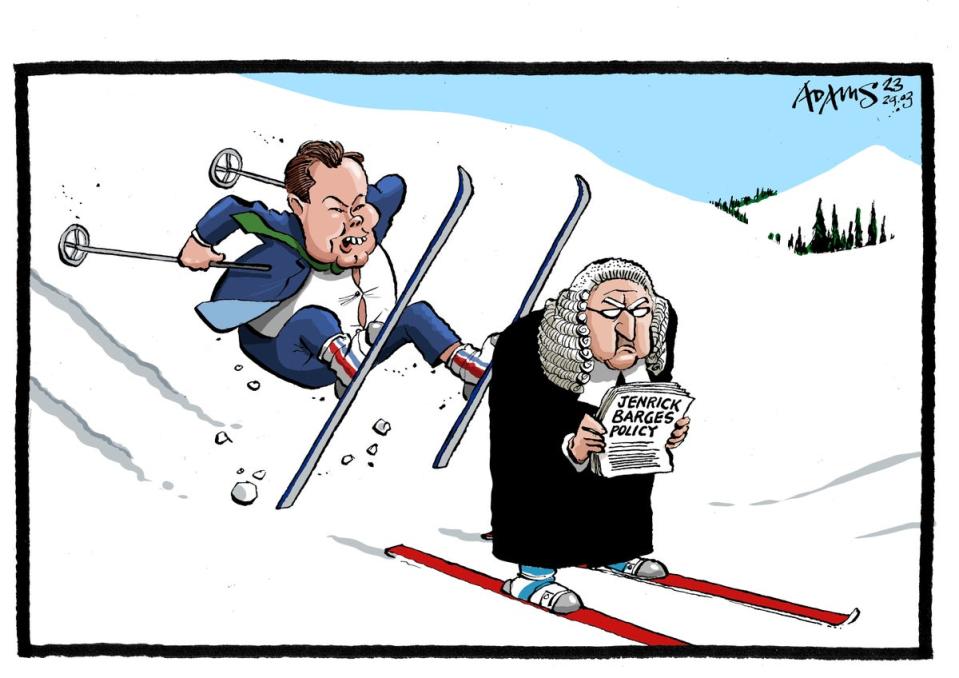OPINION - The Standard View: Safe and legal routes, not gimmicks, are required to fix our asylum system

Immigration and asylum policy are never straightforward. From who to admit, to the criteria on which that decision is based and how to investigate evidence of oppression — these are hugely important. What we need less of, therefore, are gimmicks and overheated rhetoric.
The use of hotels to house asylum seekers has caused controversy, in large part due to their cost. The Government says it is spending £6.2 million a day to house 50,000 migrants in this type of accommodation. Consequently, ministers are proposing the use of alternative facilities such as former military bases and, less credibly, barges.
Instead of headline-grabbing stunts, the Government should, for one thing, focus on speeding up processing times. At the end of 2022, there were more than 166,000 cases in the backlog — most of whom were awaiting an initial decision — with waiting times of well over a year.
The Government accepts this is too high and blames the rising number of applications, case complexity and declining Home Office productivity. It ought to invest in specialist staff and reinstate the target to decide 98 per cent of ‘straightforward cases’ within six months.
Ultimately, to cut down on dangerous and illegal crossings, Britain must provide more legal and safe routes, without which desperate people, including children, will continue to make the perilous crossing over the Channel.
Face the climate crisis
Combating catastrophic climate change is not simply a moral or environmental priority — it is an economic necessity. According to a report by the Climate Change Committee (CCC), London’s economy would suffer a major financial blow should we allow the world to warm by 2C above pre-industrial averages. We are already at 1.1C.
In its report to Parliament on climate adaptation, the CCC noted the risk of productivity losses due to higher temperatures, such as the 40C experienced last summer. This is in addition to the vast costs wrought by more frequent and devastating flash floods, extreme drought and ecological decline.
The central conclusion of the 2006 Stern Review was that the economic benefits of intense, early action on climate change far outweigh the costs of inaction. A decade and a half on, we have lost time while the science has grown ever more certain. Switching from fossil fuels to zero carbon alternatives while adapting to a warmer world is vital to protect London’s economy and, ultimately, the place we call home.
The whiff of wildlife
After the attempt to reintroduce beavers into Enfield, north London is apparently playing host another form of wildlife: skunks.
The RSPCA is appealing for anyone who encounters a giant skunk ‘on the loose’ in Muswell Hill to report the sighting. Do not approach it — the children’s cartoons were not lying to you about the noxious liquid these creatures can emit when alarmed.

 Yahoo Sport
Yahoo Sport 





































